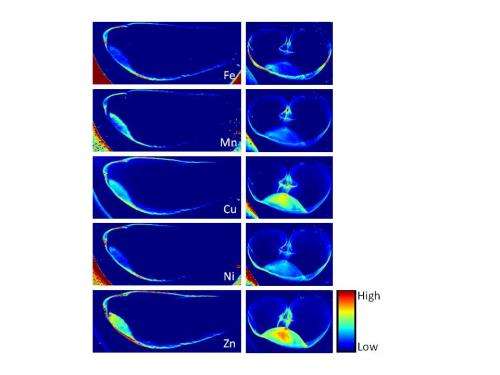Whole grains, rather than dietary fibre, found to be fundamental to the prevention of chronic disease

The apparent links between various food types and the prevention of chronic diseases - such as type 2 diabetes, coronary heart disease (CHD) and hypertension - are well established. In particular, dietary fibre has long been regarded as a powerful means of reducing health risks. However, this study finds that it is not fibre, but whole grain cereals specifically, which prevent chronic disease.
The research, conducted by a collaboration of scientists from Australia, the USA and the UK, finds that the importance of whole grain is under-appreciated by health care providers, resulting in severe whole grain deficiencies on national scales. The report presents "compelling evidence to suggest that increasing whole grain intake in modern societies is a pressing health concern"; and provides evidence to substantiate the purported relationship between whole grain and disease prevention.
On the basis of observing 11 major US prospective studies, the review proves that whole grains are particularly central to a healthy diet; pinpoints the dose necessary; and predicts the long-term impact of whole grain consumption, or lack thereof, on public health.
Cereal grain is made up of a number of different components, but this study, which included investigating wheat grain to obtain element fluorescence data using intense x-rays available at the UK's synchrotron facility Diamond Light Source, finds that the most nutritionally significant part of the grain is called the aleurone. The aleurone contains a combination of magnesium, iron, zinc and ferullic acid nutrients, and it is these which contribute such a positive impact on long-term health. Up until now, health care providers have presented dietary fibre as the most significant element in counteracting the risk of chronic disease. However, this report contends that "it is the key nutrients associated with fibre, not indigestible fibre itself, which principally confer the positive effects".

The scientists observe a direct link between whole grain consumption and incidences of type 2 diabetes, CHD and hypertension. This was observed even after allowing for lifestyle differences in general diet and physical exercise. As such, the report finds that increasing whole grain consumption by 40g and ideally 50g daily (approximately one bowl of whole grain breakfast cereal daily) could have a considerable impact on public health. Worryingly, the team estimates that approximately 80% of the population do not consume the required serving, and are thus subject to increased risks of chronic disease.
Type 2 diabetes, CHD and hypertension present public health costs of over $200 billion annually in the US alone. Large quantities of the grain we consume – breakfast cerals, bread, pasta – is processed to remove bran. This may contribute to high levels of the chronic diseases in question.
This report proposes that increasing awareness of the benefits of whole grain could dramatically reduce costs to national finances and public health. Based on the strength of the correlations observed, it surmises that consuming the optimum daily portion of whole grain is even more important to long-term health than achieving 5 fruit and vegetables a day.
The team concludes by defining whole grain as an antioxidant foodstuff, because of the significant positive impact it confers on long-term health. However, the report highlights the importance of promoting whole grain publically in order to increase consumption. Recommendations include highlighting whole grain content on package labels, and increasing awareness of aleurone as a nutrient with positive health properties. The review notes that whole grain is in plentiful supply, easy to store and relatively inexpensive. As such, the food stuff could prove highly effective in combating many forms of chronic disease and fundamental to public health.
The paper was published in Biofactors, Wiley Online Library 2013.
More information: DOI: 10.1002/biof.1077
















